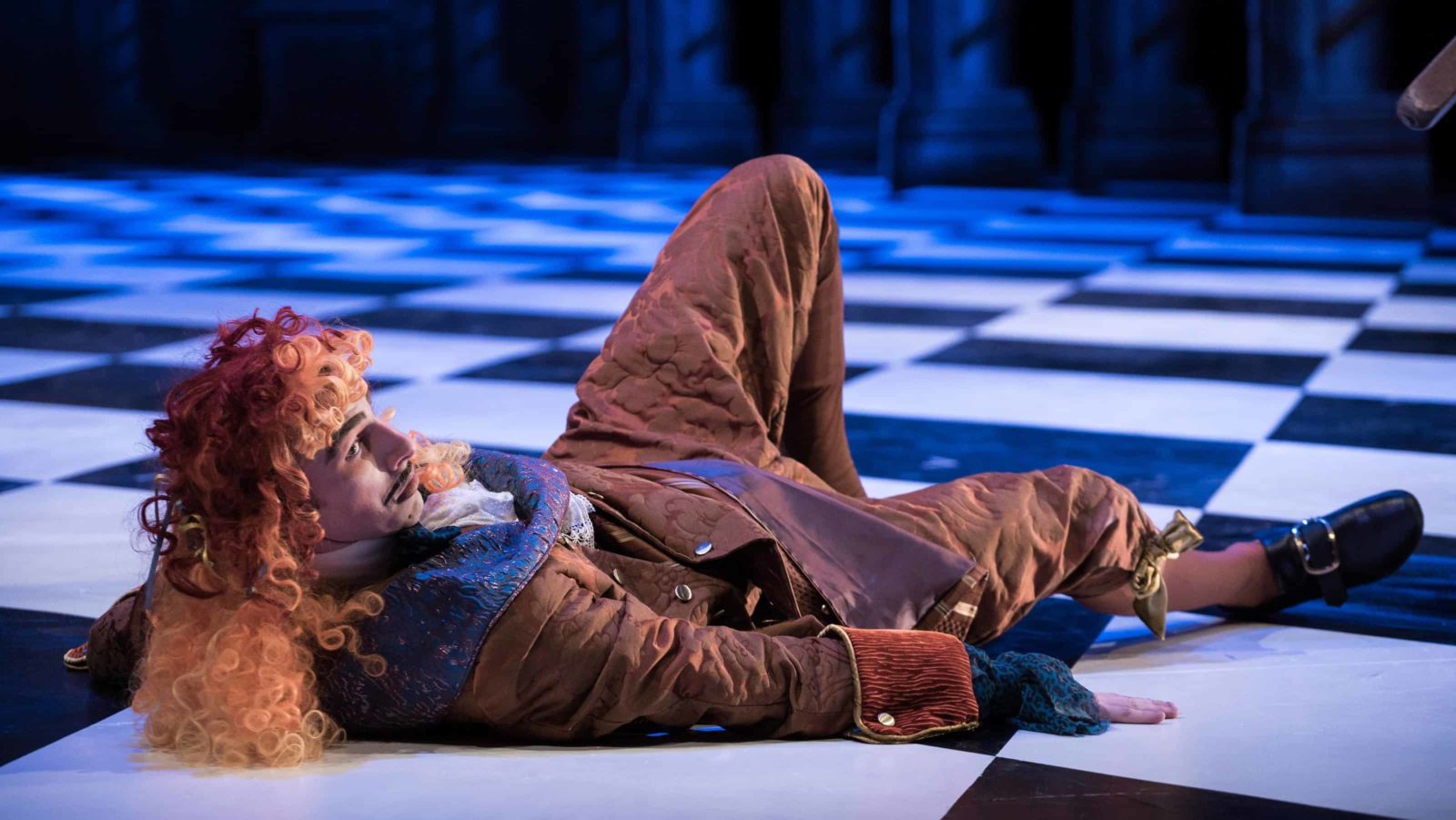Leather boots. Falls of curls streaked with color. Women in corsets and men in long hair and silk stockings. Lights dance on the ceiling, and a man in spangled facepaint is doing the limbo under the chandelier — the 17th century has gone clubbing in Paris. And it’s glorious.
On Saturday night, David Eppel celebrated his final performance at Williams College. He is retiring this summer, after 32 years as a professor in the theater department. And he chose to crown this last year with Molière’s classic French comedy, Tartuffe.
It’s satire from the court of Louis XIV at Versailles. Tartuffe styles himself a religious man. His charismatic fervor has impressed some of the wealthy political elite and given him power over others. Most of the people around him see him as a dangerous hypocrite, and still the critical, powerful few will not believe what he can do until they stand on the edge of losing everything.
Eppel finds it timely and finds no need to spell out why, beyond a raised eyebrow. He tunes it finely and lets it rip, and in the hands of 13 students acrobatically clowning under tables, skirts and each other, the story is gloriously antic — gloriously real and gloriously sane.
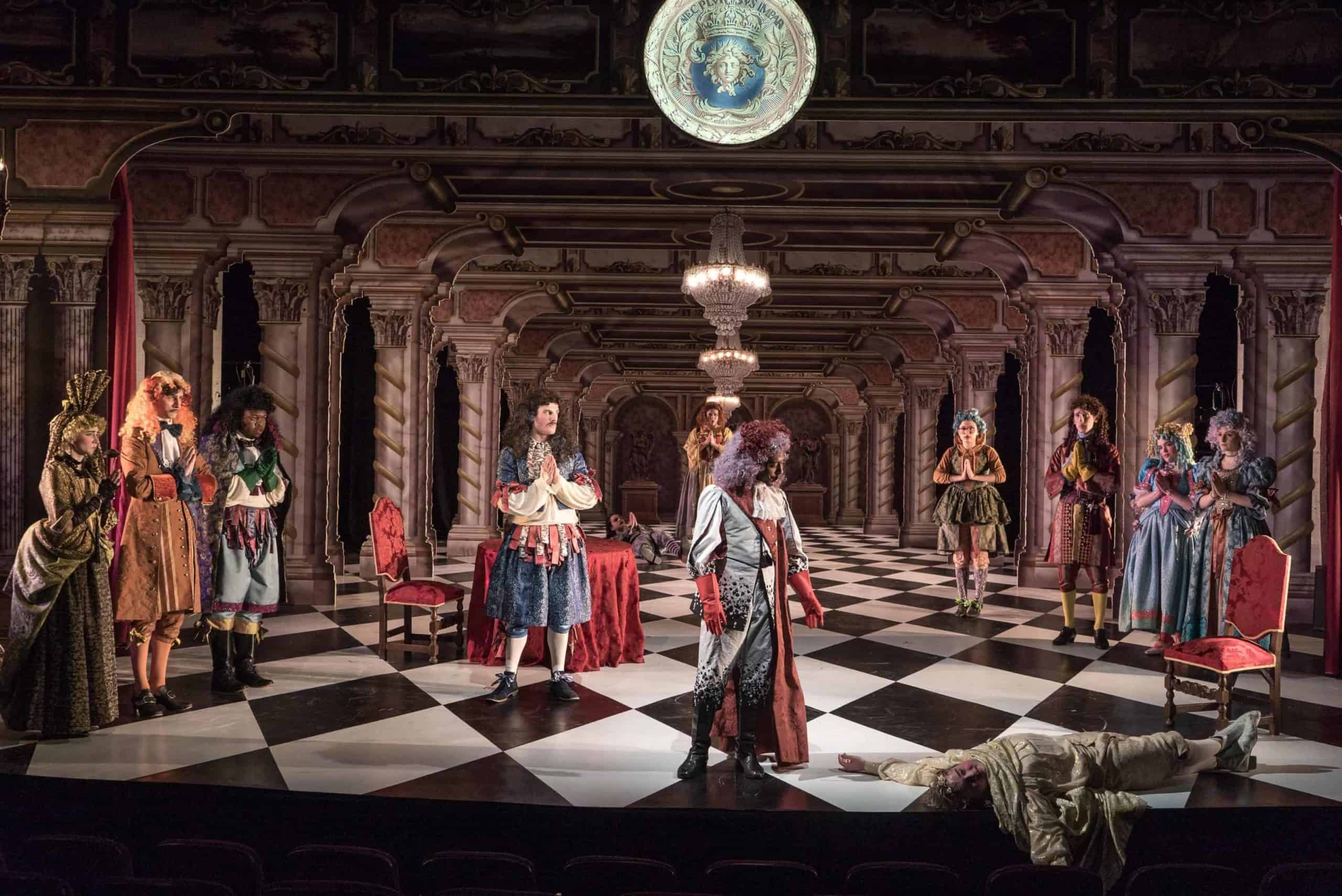
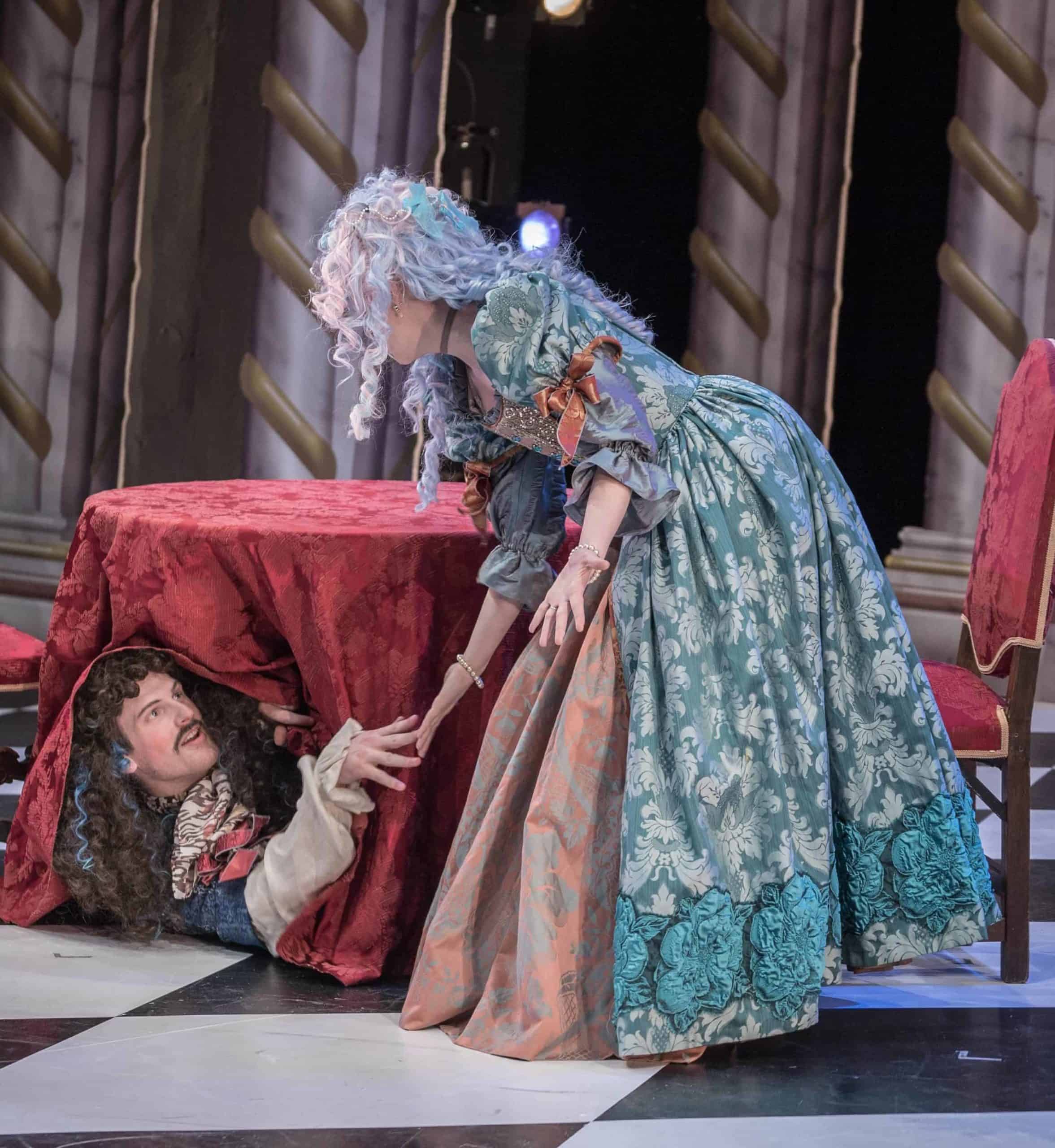
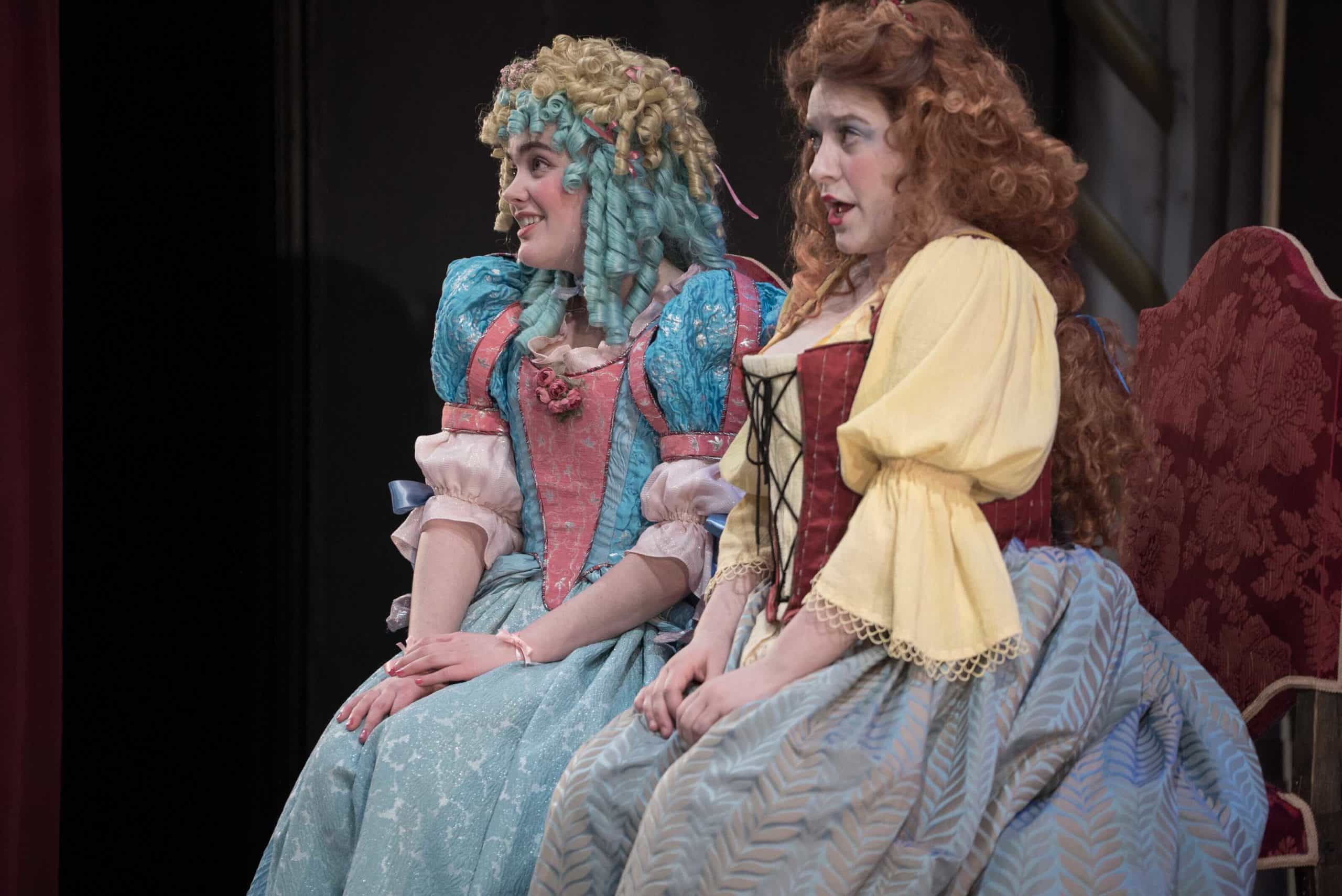
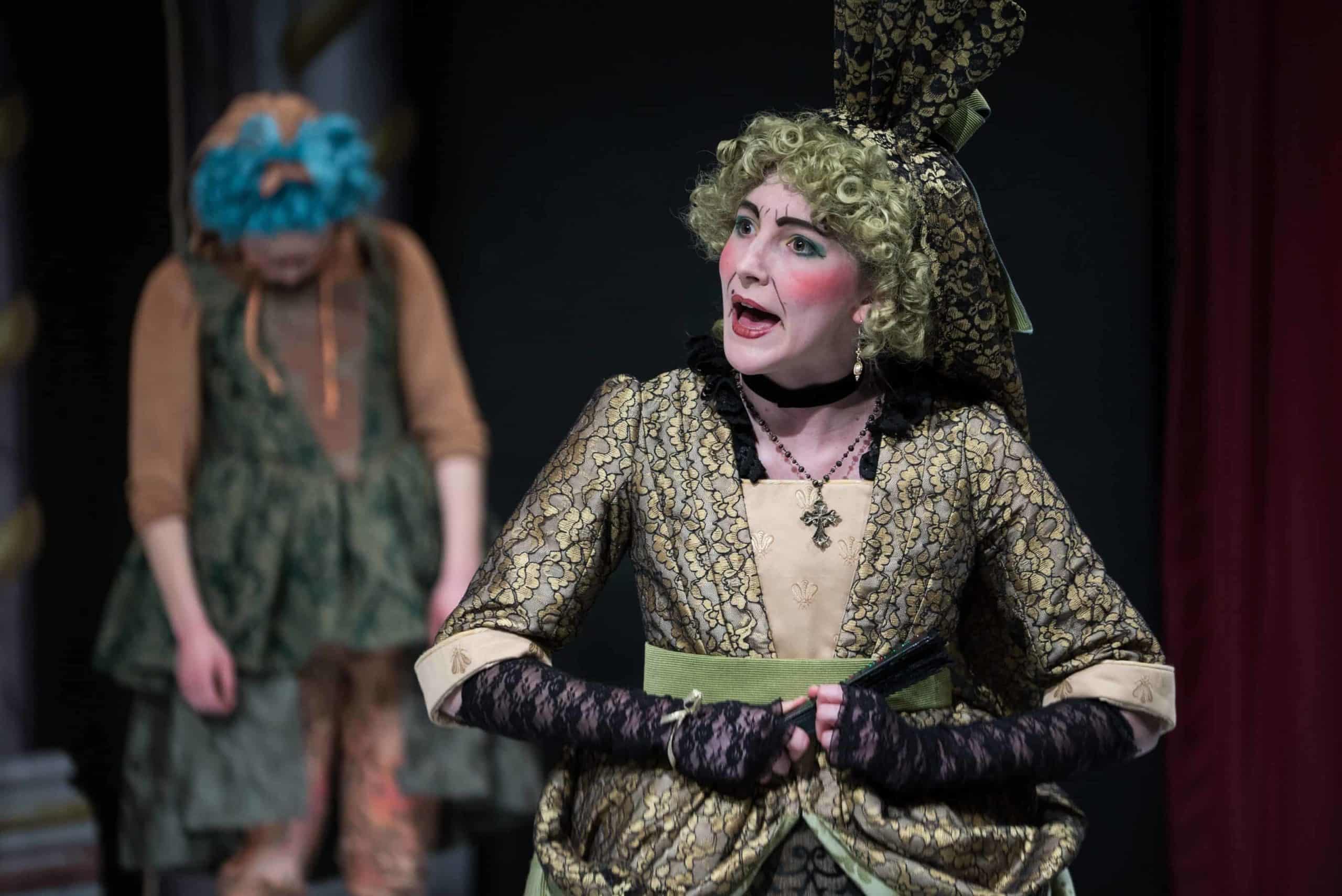
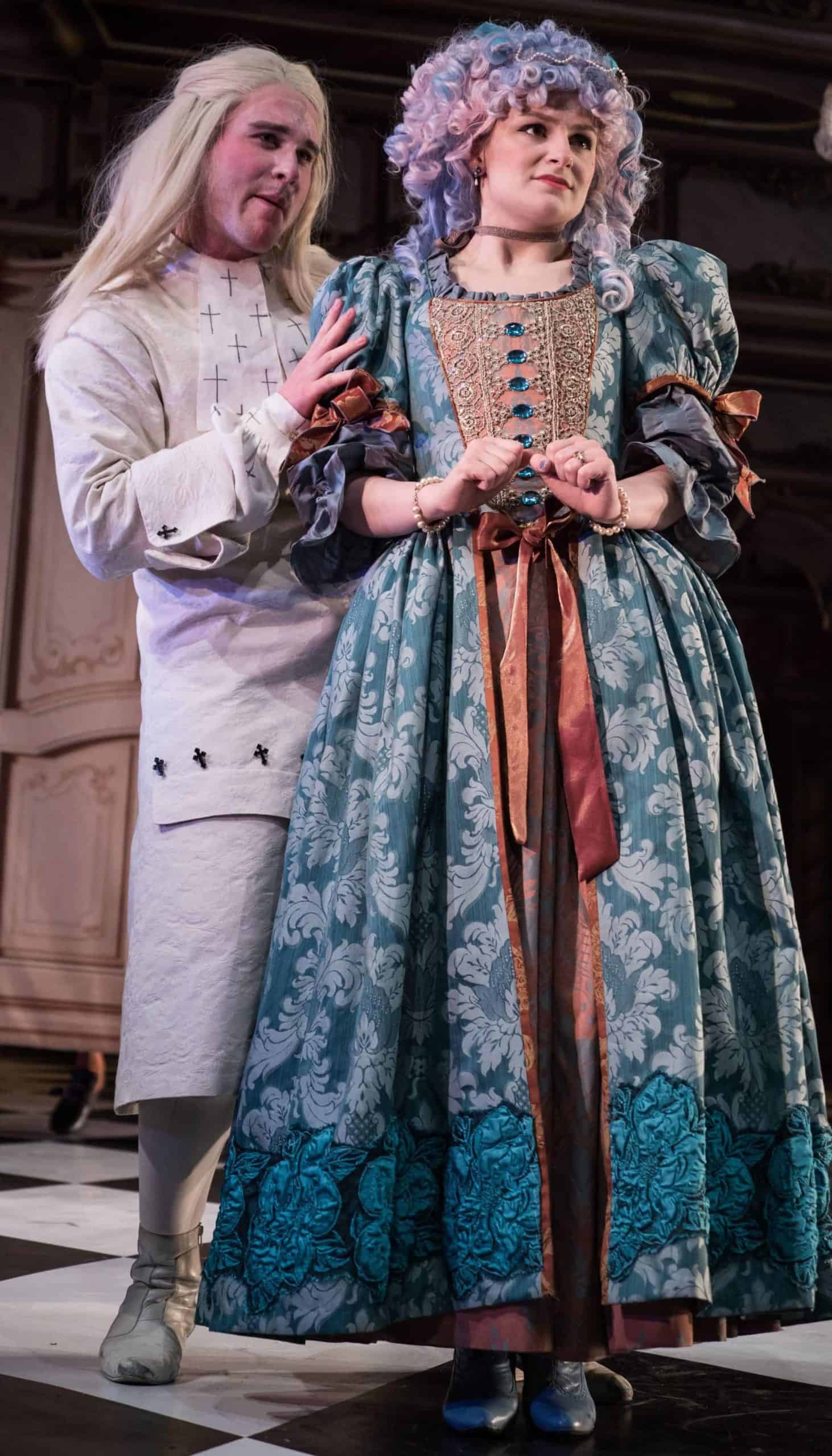
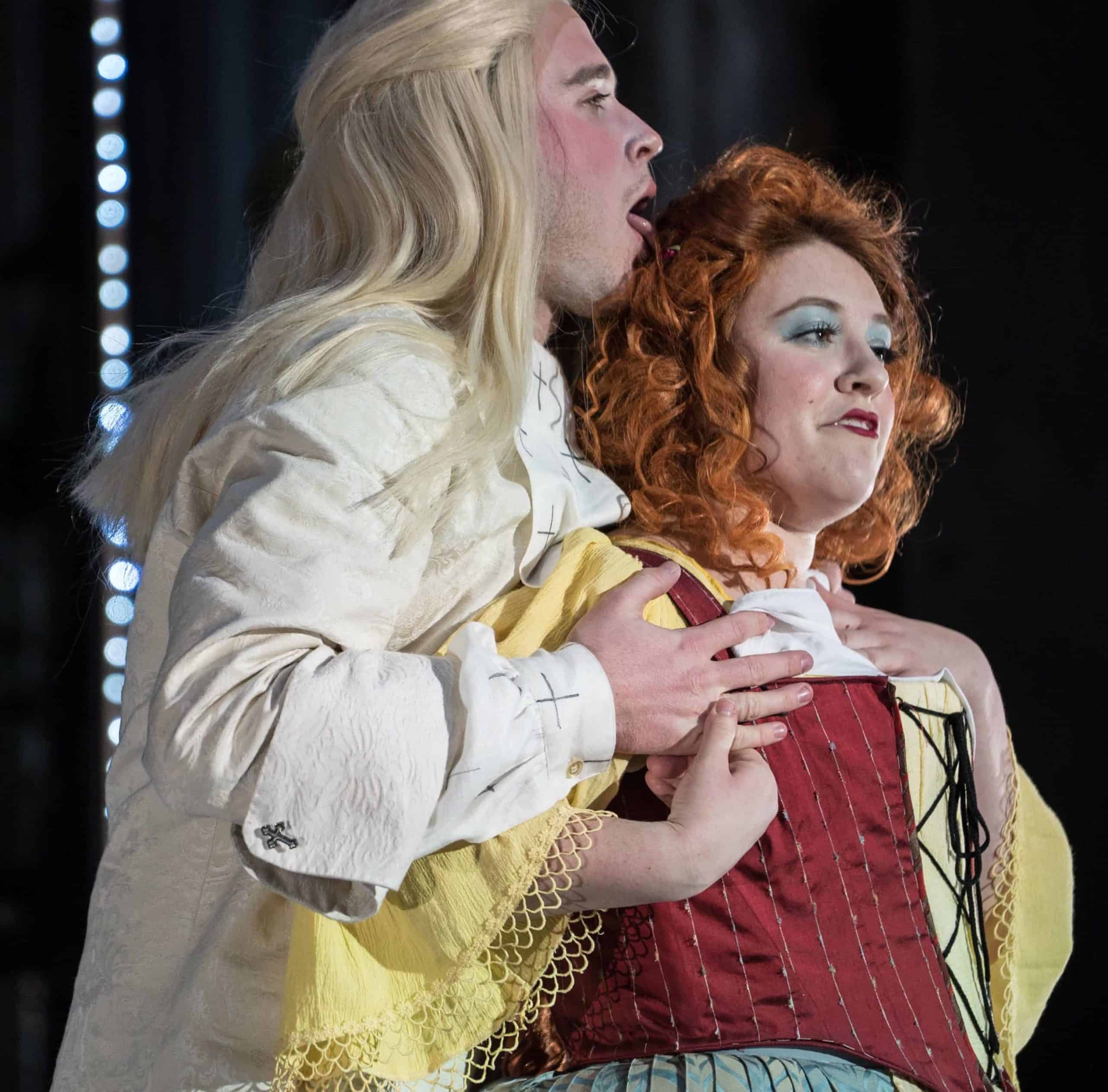
It begins without warning.
The lights haven’t come down, and the curtain hasn’t come up. The audience is casually chatting, children talking over the backs of their chairs with their parents in the next row, wondering if the stage can possibly go as far back as it looks. And suddenly the stage is filling with actors, running in from the wings, swinging chair legs, dropping wigs — and freezing as they notice, one by one, the room-full of people watching them.
They play with the audience. They play with the light and sound cues, circling a hand, cocking a hip, play it again, Sam. And in Richard Wilbur’s translation, they play with meter and rhyme.
Eppel has tapped a long tradition. Wilbur, the National Poet Laureate and National Book awardwinning poet, lived in the Berkshires and translated many of Molière’s slyly rhyming comic plays into English verse, and many of them have played in this theater, even premiered here (under Williamstown Theatre Festival’s founding artistic director, Nikos Psacharopoulos).
And the actors revel in the game of language — swinging on the rhymes, feeling for them, tossing them like punchlines. Evelyn Mahon holds the stage as Dorine, the observant maid who gets to say bluntly what everyone else is thinking, calling out the frauds and all but shaking the idiots by the scruffs of their necks.
She has her choice of sublime buffoonery — the young lovers, the disinherited son, and at the pinnacle, Scott Lipman as Orgon, the duped duke, following Tartuffe to the ruin of his family.
Tartuffe himself, resplendent in a white lounge coat, holds the audience’s eye, seducing Orgon with his supposed piety and seducing the audience with his sheer audacity at the same time.
We laugh at his chicanery, secure in our own clear-sightedness, because like Dorine we know he’s a fraud — and then we run up against what’s at stake behind the banter. Caroline Fairweather as Elmire, Orgon’s wife, is dealing with Tartuffe’s frontal assaults with an impervious courage and a humor that holds an edge.
And then the jesting whirligig will come to a halt, and for a moment one voice will speak in dead earnest. Often that voice is Terah Ehigiator as Cléante, walking into chaos with a few words: Oh, my God.
In a circus that follows Tartuffe absolutely or rejects him absolutely, Cléante believes faith and generosity, clear sight and intelligence and wide-mindedness can exist, and usually come together. He defines the people who are what Tartuffe pretends to be.
They’re never ostentatious, never vain,
and their religion’s moderate and humane;
it’s not their way to criticize …
Not everyone agrees. In its own time, Tartuffe was banned. A play that held so many religious, social and political systems up to the light seemed dangerous. Eppel said it matters to him to give it a voice, as a native of South Africa, where so many voices were silenced. In the 21st century, in a college preparing for Spring Break, Tartuffe is refreshingly and reassuringly alive.

